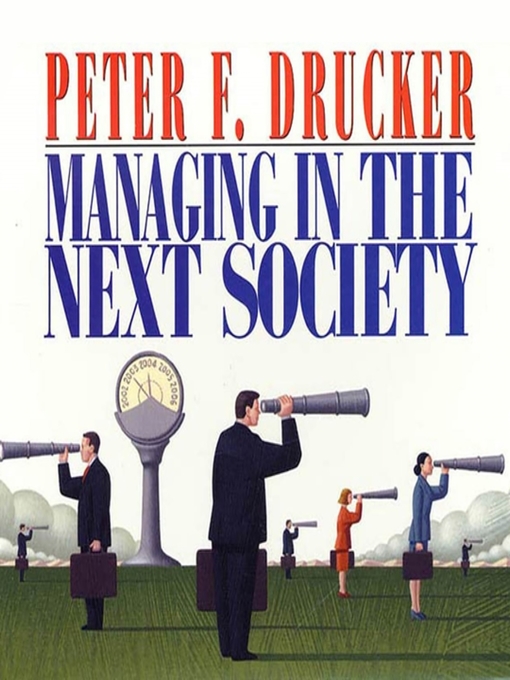Change has become a constant. Changes in the way we live and work. Changes in institutions and the society around us. Changes in people's needs and desires. For more than 60 years, Peter Drucker has been modern society's preeminent thinker, lecturer, and writer of and about change and its effect on management.
Now, at the start of the 21st century, this major new title takes the listener into two broad areas of life today: first, the information society and its new and vastly different employee, the knowledge worker; and second, the underlying trends in today's society that are already influencing, and will greatly change tomorrow's. These major trends include: The Global Baby Bust; The New U.S. Demographics; The New York Force; The More competitive Knowledge Society; and the Future of Top Management, among others.
- Available now
- New eBook additions
- New kids additions
- New teen additions
- Most popular
- Spanish Titles for Young Readers
- Try something different
- Explore All-Access Romance!
- Get Started With All-Access Comics!
- See all ebooks collections
- Available now
- New Audiobook Additions
- New kids additions
- New teen additions
- Most popular
- Try something different
- See all audiobooks collections


